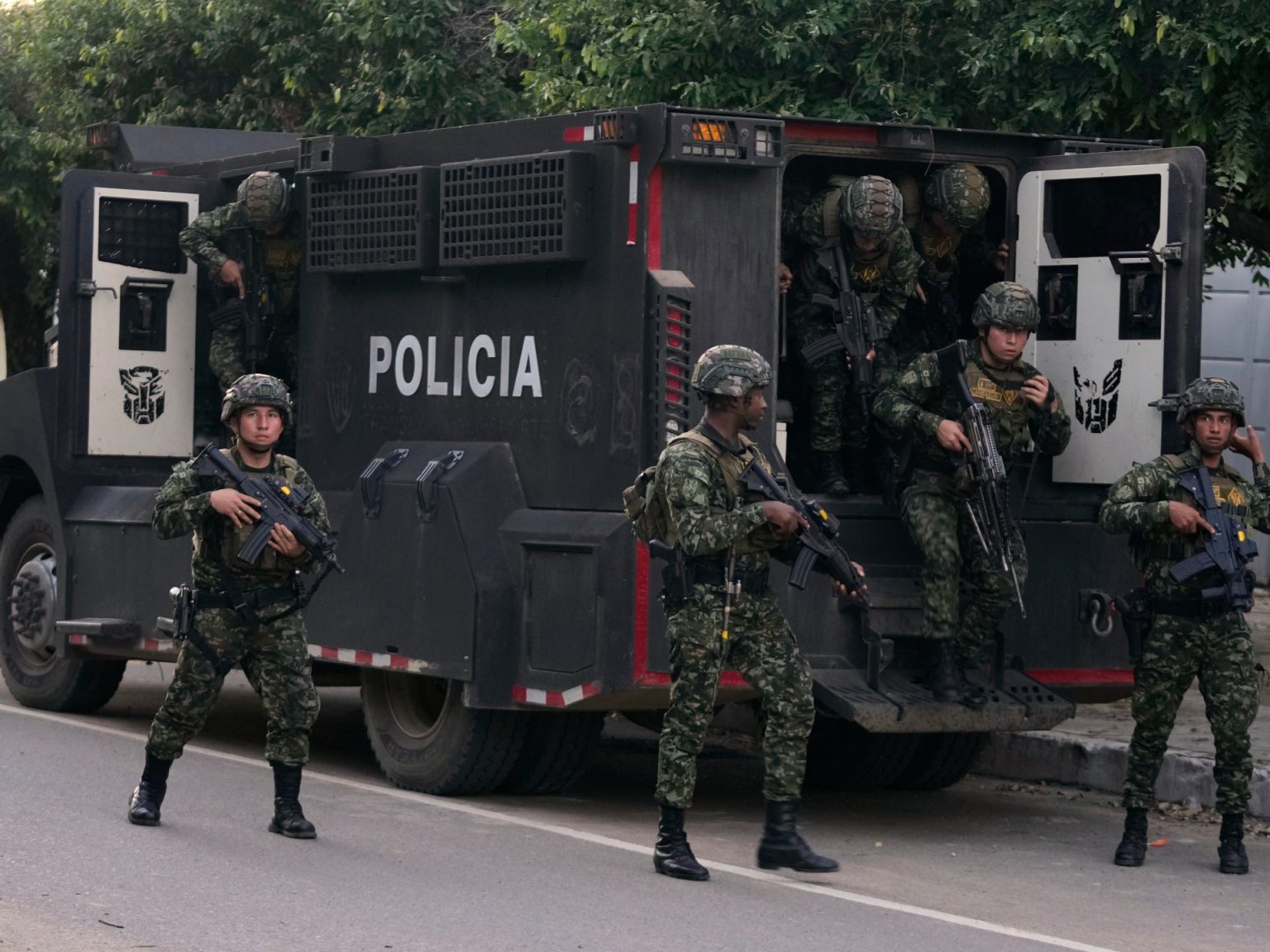The Catatumbo region of Colombia, bordering Venezuela, has become a battleground for rival armed groups, displacing over 32,000 people and claiming at least 80 lives since mid-January. The escalating violence stems from a power struggle between the National Liberation Army (ELN) rebels and dissident factions of the Revolutionary Armed Forces of Colombia (FARC), both vying for control of lucrative drug-trafficking routes. This renewed conflict has shattered the fragile peace that had begun to take hold in the region, forcing thousands of civilians to abandon their homes amidst indiscriminate attacks and door-to-door threats by the warring factions. The humanitarian crisis has prompted international concern, with calls for an end to the violence and unimpeded access for aid organizations to assist the displaced population.
Colombian President Gustavo Petro, who assumed office in 2022 on a platform of “total peace,” has responded to the crisis by invoking emergency powers. This decree grants him sweeping authority for up to 270 days to implement measures such as curfews and traffic restrictions, bypassing typical congressional approval processes and potentially infringing on civil liberties. The move underscores the gravity of the situation in Catatumbo and the government’s determination to restore order. However, the decree also raises concerns about potential human rights implications, given the broad scope of the granted powers. The president’s decision comes after the suspension of peace talks with the ELN, a consequence of the group’s escalating violence in the region.
While President Petro’s peace initiatives have previously yielded some positive results in reducing overall violence across Colombia, the recent resurgence of fighting in Catatumbo demonstrates the persistent challenges in achieving lasting peace. The fragmentation of armed groups, coupled with their deep-rooted involvement in the drug trade, creates a volatile environment prone to renewed clashes. The current conflict not only undermines the peace process but also exacerbates the humanitarian crisis, leaving tens of thousands of civilians vulnerable and displaced. The Colombian government faces the complex task of balancing its commitment to peace negotiations with the immediate need to address the escalating violence and protect its citizens.
The Colombian government has deployed a significant military presence to Catatumbo in an attempt to quell the violence and restore stability. Simultaneously, the Attorney General’s office has reinstated arrest warrants for ELN leaders, signaling a tougher stance against the group’s involvement in the escalating conflict. The revocation of previously suspended arrest warrants for ELN representatives involved in peace negotiations further reflects the government’s frustration with the group’s actions. While the ELN denies targeting civilians and claims its offensive is directed solely against FARC dissidents, the impact on the civilian population remains devastating.
The humanitarian fallout from the conflict is severe, with thousands of displaced families seeking refuge in neighboring regions and even across the border in Venezuela. Overcrowded shelters have raised concerns about potential disease outbreaks and the strain on local health systems, which are ill-equipped to handle the influx of displaced individuals. Aid organizations are working to provide essential services, but the scale of the crisis requires a coordinated and sustained effort to address the immediate needs of the displaced population, including shelter, food, medical care, and psychosocial support. The prolonged displacement also raises concerns about the long-term impact on the affected communities, including access to education, livelihoods, and basic services.
The plight of the displaced civilians in Catatumbo underscores the human cost of the ongoing conflict. Families have been forced to flee their homes with minimal belongings, facing an uncertain future and the trauma of witnessing violence and loss. The testimonies of those who have escaped paint a grim picture of the situation on the ground, highlighting the urgent need for a resolution to the conflict and a commitment to protecting the rights and safety of all civilians. The international community plays a crucial role in supporting humanitarian efforts and advocating for a peaceful resolution to the crisis, ensuring that the voices of the affected population are heard and their needs are met.

